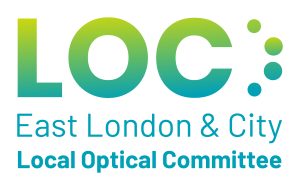CATARACTS
What is a cataract?
Within the eye there is a lens which is required to focus the light which passes into the eye. It is normal for this lens to change with age, with most people the lens gradually becomes less clear and reduces the light able to pass through it.
This cloudiness is known as a cataract and makes the picture inside the eye cloudy too. It can also cause problems with glare in bright light or with car headlamps, or make you increasingly short-sighted. This can make it difficult for you to see well enough to carry out your daily activities (including driving).
What can be done about it?
Cataracts are more common as you get older and can be found in the eyes of most people over the age of 70.
Mild cataracts do not harm the eye, and if you are having no difficulties with your vision, then nothing has to be done. If, however, it is causing difficulty and it is preventing you from doing those things that you need to do, then it is possible to perform an operation to replace the natural lens. This operation is called a cataract extraction, and your own natural lens is replaced with an artificial lens implant, to try to improve the quality of your vision.
What does a cataract operation involve?
The operation takes about 20 to 30 minutes and is usually performed under local anaesthetic that is injected around the eye to numb it, so you are fully conscious, but you don’t feel any pain. This means that most patients don’t need to stay in hospital overnight.
During the operation, the cloudy lens is removed from the eye after breaking it up with ultrasound (sound waves). A permanent implant lens is inserted into the capsule that held the previous natural lens in place. This is done through an incision which is usually small enough to seal itself without stitches.
Are there any risks with cataract surgery?
All operations carry risks of complications, and cataract surgery is no different. The vast majority of people who have a cataract operation can see better afterwards, but there is a SMALL (up to 5%) risk that problems arise that can leave your vision worse. Usually it is only slightly worse, but very RARELY (in 0.1% of cases) a serious complication can occur that can leave you with no sight at all in the operated eye. Less serious complications can often be treated, but may involve additional surgical or laser procedures.
Overall, cataract surgery is very successful in improving most people’s vision, so this information is not intended to put you off seeking surgery if your sight is causing significant problems in your daily life.
So what should I do?
It is important to understand that just because you have some cataract it does not mean that you HAVE to have a cataract operation.
The time you should consider a cataract operation is when you feel your vision is causing enough problems to accept the small degree of risk that is involved in surgery.
There is no benefit in operating sooner than you feel necessary.
What happens if I decide I want surgery?
Your Optometrist will help you understand the information about whether you want to be treated, and your GP can help you decide where you want to be treated.
What should I do about my medication?
You should continue your normal medication. However if you are on warferin or clopidogel, you should discuss this with you surgeon and follow their advice.
After surgery
Do not drive until you can read a number plate from 20.5 metres (67 feet).
It is expected that you will require glasses after surgery. About four to six weeks after the operation you will need to visit your Optometrist in order to ensure your glasses are giving you the full benefit of the operation.
Usually it will be necessary to change your glasses. Regular routine eye examinations will still be required after surgery.
Your surgeon will tell you when you can return to normal activities. Most people resume normal activities after surgery. It is important to look after your eyes as you are told, to reduce the risk of any complications.
Do not swim or lift heavy objects before the date advised by your surgeon.
Regular exercise should help you to return to normal activities as soon as possible. Before you start exercising, you should ask a member of the healthcare team or your GP for advice.
Summary
A cataract is a common problem where the natural lens of the eye becomes cloudy. If your vision is getting worse and affecting your daily activities, cataract surgery should improve your vision.
Surgery is usually safe and effective. However, complications can happen.
Patient information leaflet EL&C Cataract information leaflet Final(2)
CATARACT REFERRAL SCHEME
Cataract Referral Scheme Accredited Practices City and Hackney
Askew Eyewear
195/197 Church Street, Stoke Newington London N16 0UL
020 7249 6333
Boots Opticians
160-161 London Wall London EC2M 5QD
020 7628 8721
Boots Opticians
1 Poultry, London, EC2R 8EJ
020 7329 3320
Infocus Optometrists
82 Mare Street, London E8 3SG
020 8985 2479
Infocus Optometrists
62A Brooksby Walk, London E9 6DA
020 8986 7658
Infocus Optometrists
163 Stoke Newington Road, London N16 8BP
020 7254 4299
Infocus Optometrists
204 Well Street, London E9 6QT
020 8985 0575
Rose Opticians
27 Lower Clapton Road, Hackney, London E5 0NS
020 8985 1971
Specsavers Opticians
152 Bishopsgate, London, EC2M 4LN
020 7377 4790






